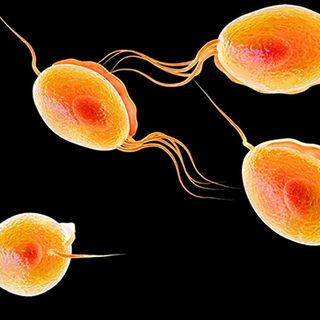A new study is challenging conventional understanding of the relationship between pregnancy and breast cancer risk, finding an elevated risk of the disease among women under 55 who had given birth, compared to peers who had not.
Previously, medical consensus was that pregnancy and childbirth offered protection against breast cancer. However, “that really comes from what breast cancer looks like for women in their 60s and beyond,” said Hazel B. Nichols, PhD, a researcher at the University of North Carolina’s Lineberger Comprehensive Cancer Center, US, and a professor of epidemiology. “We found that it can take more than 20 years for childbirth to become protective for breast cancer, and that before that, breast cancer risk was higher in women who had recently had a child.”
Because breast cancer is more common in older women, with the average age of 62 in the US, most research into disease risk has, to date, focused on that age group, among which pregnancy and childbirth does correlate with a reduced risk. However, among women under 55, that is not the case, the research team found; in this age group, women who had had children were 80% more likely to develop breast cancer five years after giving birth, compared to peers who had not given birth.
Within this age group, risk varied, as well. Women who had given birth before 25 had no elevated risk compared to peers who had never given birth, while risk was higher, compared to peers, for women who had given birth for the first time after age 35.
However, Nichols stresses, “In this age group [under 55], breast cancer is uncommon. The risk of developing breast cancer is still low overall, even if you’ve had a child five years ago.”
The findings are especially pertinent in India, where “breast cancer … is different from that in the West. Here, it is affecting more young women and more than half of them present themselves in the advanced stages,” reported The Economic Times earlier this year. Lifestyle and environmental factors have so far been thought to be behind the comparatively earlier development of the disease.
Article continues below
The new study drew data from 15 studies around the globe that included 889,944 women. It was notable in that, while previous studies have suggested an increased risk in breast cancer in younger women after childbirth, they’ve not taken into consideration other factors that might impact risk, such as breastfeeding or family history of breast cancer, researchers said.
Breastfeeding, along with pregnancy and childbirth, has been considered protective against breast cancer, but this study also found no pattern in the data to suggest the two are related.
The goal of the research was not to discourage women from having children, said Nichols. Instead, she hoped it would just be a reminder to women and their doctors not to overlook risks. “We need to recognize that the traditional risk factors for breast cancer do not always operate the same way at younger ages,” she said. “We want women and their doctors to not assume that recently having a child is always protective for breast cancer.”




